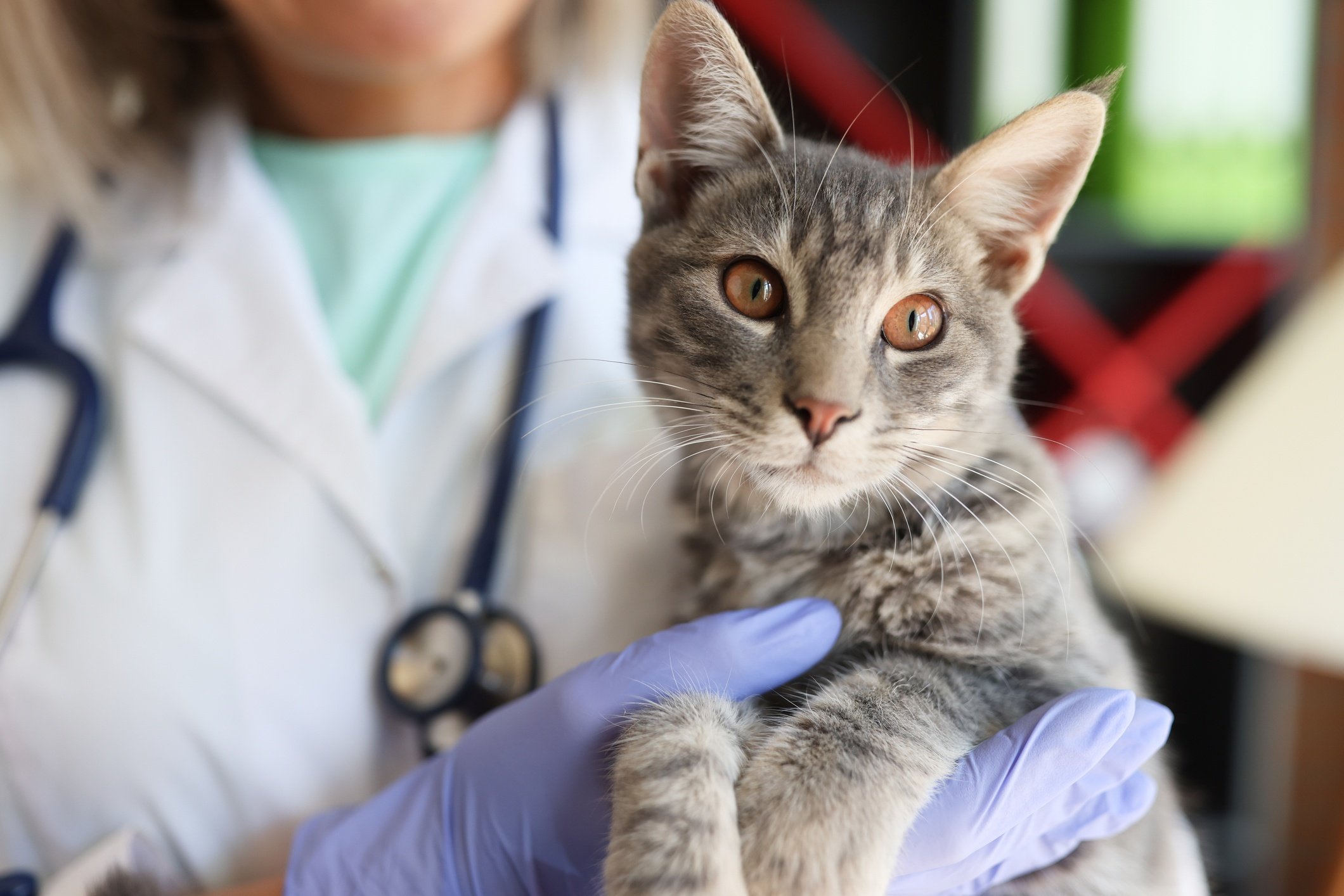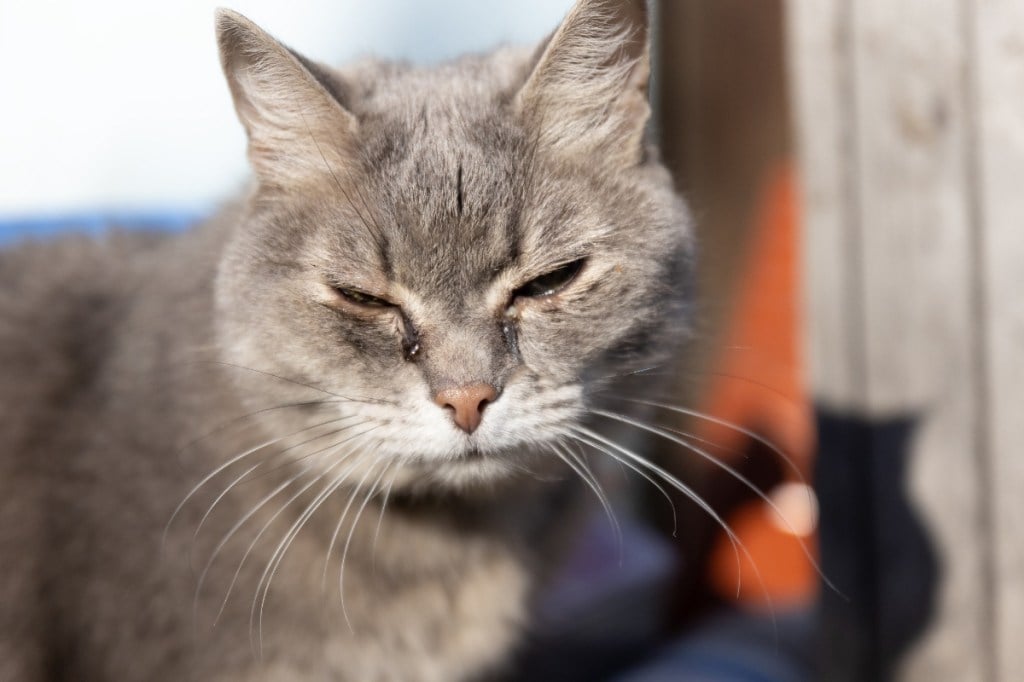Table of Contents
Just like humans, cats might experience an unexpected health issue during the course of their lives. As a loving cat parent, you can help your cat live his best life by making sure he stays healthy and happy. By educating yourself on the most common medical problems, you’ll be equipped to avoid preventable conditions, as well as spot concerning symptoms early on so that your cat can get swift treatment.
Feline Lower Urinary Tract Disease (FLUTD)
FLUTD encompasses a variety of conditions that affect a cat’s bladder and urethra. Symptoms include straining to urinate, blood in the urine, licking the area or crying due to pain, and urinating outside of the litter box. FLUTD is often seen in cats that are overweight, get little exercise, and eat a dry diet. It can be brought on by stress or other sudden changes. Any issues with urination should be taken seriously and require immediate veterinary care.
Vomiting and/or Diarrhea
Tummy troubles can be caused by a number of issues, including sensitivity to medications or a new food, eating a non-food item or toxin, or a medical condition like parasites, liver problems, or cancer. If the vomiting or diarrhea is persistent, gets worse, or is accompanied by other concerning symptoms, be sure to get in contact with your veterinarian.
Fleas
Though they are a nuisance, fortunately flea problems are easy to treat. A flea problem is relatively easy to spot: your cat will be scratching frequently and may experience some hair loss or hot spots, plus you’ll see the fleas which look like little black specks. Treating your cat for fleas requires either an oral medication, bath, powder, or topical medication; ask your veterinarian for advice. Once the fleas are gone, start your cat on a flea prevention regimen to protect your cat and avoid this issue in the future.
Dental Disease
The best way to prevent dental disease is by regularly brushing your cat’s teeth–as often as possible and ideally every day. Without regular dental care, your cat can develop gingivitis, ulcers, and loose teeth. Symptoms include bad breath, red and swollen gums, excessive drooling and pawing at the mouth. Dental issues are painful and no fun for your kitty, so seek veterinary care if you notice these symptoms.
Obesity
Carrying extra weight puts your cat at a greater risk of several health issues, including diabetes, joint pain and liver issues. Your veterinarian can tell you if your cat’s weight is concerning and how to manage it, but you can also do a quick assessment at home. A cat at a healthy weight should have a discernible waistline when viewed from above and a tuck at the tummy when viewed from the side.
Upper Respiratory Infection
Commonly caused by a viral infection, cats can experience respiratory issues ranging from mild to serious. They often involve a runny nose, sneezing, cough, teary eyes, and fever. Many of these viruses are contagious among cats. If left untreated, some respiratory infections can progressively get worse, so it’s best to consult with your veterinarian for the best course of treatment.
The content is not intended to be a substitute for professional veterinarian advice, diagnosis, or treatment. Always seek the advice of your veterinarian or other qualified health provider with any questions you may have regarding a medical diagnosis, condition, or treatment options.






